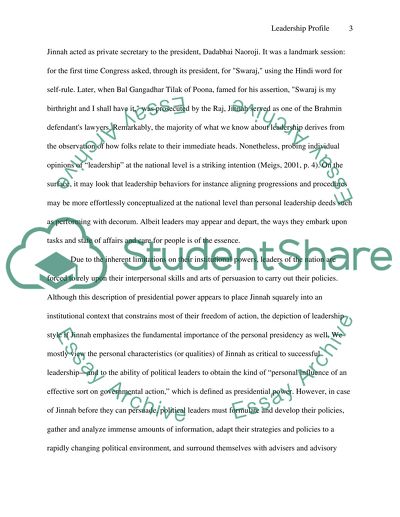Cite this document
(Leadership Profile: Muhammad Ali Jinnah Essay Example | Topics and Well Written Essays - 1500 words, n.d.)
Leadership Profile: Muhammad Ali Jinnah Essay Example | Topics and Well Written Essays - 1500 words. https://studentshare.org/people/1537905-leadership-profile-second-stage-qaide-azam-mohmad-ali-jinah
Leadership Profile: Muhammad Ali Jinnah Essay Example | Topics and Well Written Essays - 1500 words. https://studentshare.org/people/1537905-leadership-profile-second-stage-qaide-azam-mohmad-ali-jinah
(Leadership Profile: Muhammad Ali Jinnah Essay Example | Topics and Well Written Essays - 1500 Words)
Leadership Profile: Muhammad Ali Jinnah Essay Example | Topics and Well Written Essays - 1500 Words. https://studentshare.org/people/1537905-leadership-profile-second-stage-qaide-azam-mohmad-ali-jinah.
Leadership Profile: Muhammad Ali Jinnah Essay Example | Topics and Well Written Essays - 1500 Words. https://studentshare.org/people/1537905-leadership-profile-second-stage-qaide-azam-mohmad-ali-jinah.
“Leadership Profile: Muhammad Ali Jinnah Essay Example | Topics and Well Written Essays - 1500 Words”. https://studentshare.org/people/1537905-leadership-profile-second-stage-qaide-azam-mohmad-ali-jinah.


